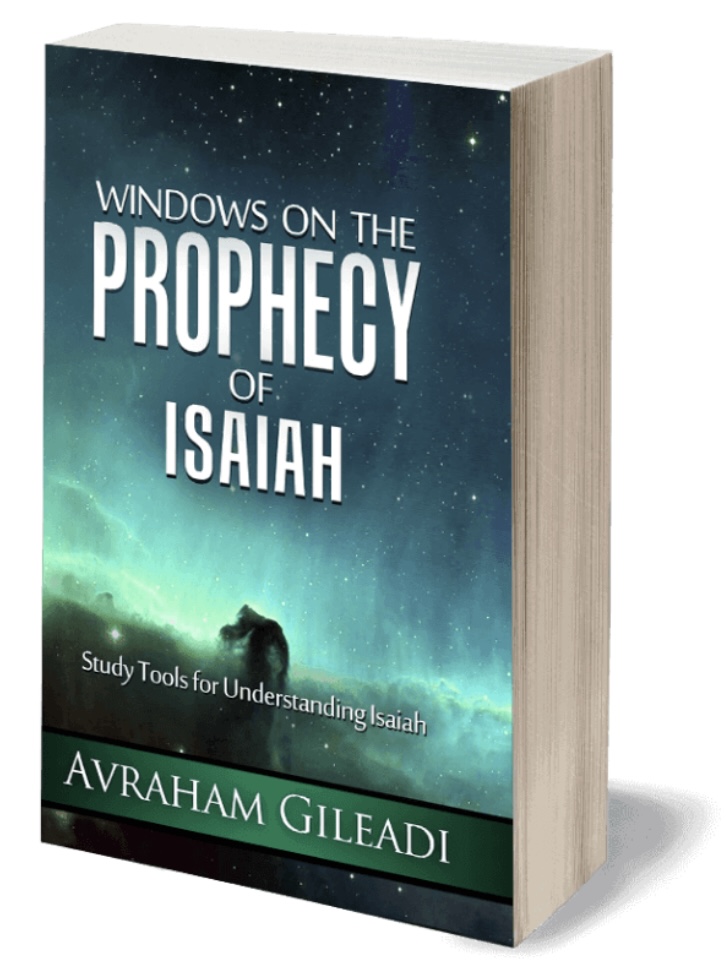We may be tempted to think of “Israel” as the land of Israel in the Middle East with its Jewish majority population. But that isn’t exactly how God thinks of it. Nor does the current Jewish return to their Promised Land fulfill the main elements of prophets’ predictions of a return.
Prophecies of Israel’s restoration lack the exclusive, ethno-centric view of many descendants of Israel’s ancestors Abraham, Isaac, and Jacob. God had promised them that “all nations of the earth”—not just one—would be blessed through their posterity (Genesis 22:18; 26:4; 28:14).
Much of God’s scattering of Israel among every nation, kindred, tongue, and people after they rebelled against him has resulted in their assimilation into the nations of the world. This has led to a fragmented Israel that today consists of many ethnic and assimilated lineages.
Isaiah’s prophecies about certain “kings” and “queens” of the Gentiles who escort and carry God’s “sons” and “daughters” home to Zion show that Israel’s end-time restoration involves interaction—even direct cooperation—between these Gentile saviors and God’s people Israel.
Isaiah 49:22–23I will lift up my hand to the Gentiles,
raise my ensign to the peoples;
and they will bring your sons in their bosoms
and carry your daughters on their shoulders.
Kings shall be your foster fathers,
queens your nursing mothers.
Isaiah 60:3–4Gentiles will come to your light,
their kings to the brightness of your dawn
Lift up your eyes and look about you!
They have all assembled to come to you:
your sons shall arrive from afar;
your daughters shall return to your side.
Isaiah’s prophecy of kings is inherent in God’s promise to Abraham, Isaac, and Jacob that “kings will come out of you” (Genesis 17:6; 35:11). If that promise was limited to King David and his ancient heirs, why would God require Gentile kings to restore his end-time people Israel?
The answer lies in Israel’s lineages that assimilated into Gentile nations’ losing their identity as Israelites. Identifying such lineages today, however, doesn’t mean they must exhibit a form of rabbinic Judaism in order to have Israelite roots. Nor need they be limited to a single tribe.
Israel’s exile—the Ten Tribes to Assyria in 722 B.C. and the Jews to Babylon in 586 B.C.—indeed constituted a covenant curse. But God resolved to turn the curse into a blessing by using it to fulfill his promise to their ancestors to bless “all nations of the earth” through their lineage.
The tribe of Ephraim was already known for “assimilating into the nations” (‘efrayim ba’amim hu’ yitbolal; Hosea 7:8), while Jacob’s blessing of Ephraim declared that his descendants would become the “fulness” or “consummation of the Gentiles” (melo’ haggoyim; Genesis 48:19).
The fact that today all nations of the world contain Israelite lineages means that all have acquired some degree of Israelite identity. God’s end-time restoration of Israel’s twelve tribes, therefore, would serve as a chance for “all nations of the earth” to inherit Israel’s covenant blessings.
Isaiah 2:2–4In the end-time
the mountain of Jehovah’s house
shall become established
as the head of the mountains;
it shall be preeminent among the hills,
and all nations will flow to it.Many peoples shall go, saying,
Come, let us go up
to the mountain of Jehovah,
to the house of the God of Jacob,
that he may instruct us in his ways,
that we may follow in his paths.
For out of Zion shall go forth the law,
and from Jerusalem the word of Jehovah.
He will judge between the nations
and arbitrate for many peoples.
Simply because Israelites assimilated into other nations and lost their identity doesn’t mean that they can’t participate in—or even undertake—Israel’s end-time restoration. Indeed, the most likely candidates for Gentile kings and queens are descendants of the tribe of Ephraim.
Also known as God’s “servants” and “watchmen,” these kings and queens receive direction from God’s servant who initiates Israel’s restoration. After he suffers for the transgressions of God’s people as their proxy savior, God empowers him to physically reconstitute Israel’s tribes.
Isaiah 52:13–15My servant, being astute, shall be highly exalted;
he shall become exceedingly eminent:
just as he appalled many—
his appearance was marred beyond human likeness,
his semblance unlike that of men—
So shall he yet astound many Gentiles,
kings shutting their mouths at him—
what was not told them, they shall see;
what they had not heard, they shall consider.
Isaiah 49:6He said: It is too small a thing
for you to be my servant
to raise up the tribes of Jacob
and to restore those preserved of Israel.
I will also appoint you to be a light to the Gentiles,
that my salvation may be to the end of the earth.
Isaiah 52:7–8How comely upon the mountains
are the feet of the messenger announcing peace,
who brings tidings of good,
who heralds salvation,
saying to Zion, Your God reigns!
Hark! Your watchmen lift up their voice;
as one they cry out for joy:
for they shall see eye to eye
when Jehovah reestablishes Zion.
As God’s “light,” “hand,” and “ensign” who directs the Gentiles’ kings and queens to carry his people home, the servant is personally charged with restoring Israel. God appoints the “sprig/root/graft of Jesse” (sores yisai)—his servant—to gather them from the four directions.
Isaiah 11:10–12, 16In that day the sprig of Jesse,
who stands for an ensign to the peoples,
shall be sought by the nations,
and his rest shall be glorious.
In that day my Lord will again raise his hand
to reclaim the remnant of his people—
those who shall be left out of Assyria,
Egypt, Pathros, Cush, Elam, Shinar, Hamath,
and the islands of the sea.He will raise the ensign to the nations
and assemble the exiled of Israel;
he will gather the scattered of Judah
from the four directions of the earth. . . .
And there shall be a pathway out of Assyria
for the remnant of his people who shall be left,
as there was for Israel
when it came up from the land of Egypt.
These events evidently don’t match the current Jewish return to their Promised Land. Isaiah, however, predicts that those who return home in the new exodus are welcomed by some already there. In other words, a beginning of gathering precedes a major gathering that is yet to occur.
Isaiah 26:1–3In that day shall this song be sung in the land of Judah:
Our city is strong; salvation he has set up
as walls and barricades!
Open the gates to let in the nation
righteous because it keeps faith.
Those whose minds are steadfast, [O Jehovah,]
you preserve in perfect peace,
for in you they are secure.
The identity of the Gentiles’ end-time kings and queens who restore Israel is no mystery when we consider that theirs is essentially a spiritual, not political role under the terms of the Davidic Covenant. So was King Hezekiah’s savior role at Assyria’s siege of Jerusalem.
For the Gentiles’ kings and queens to escort or carry home remnants of Israel’s tribes scattered among all nations in a time of worldwide calamity, moreover, would require an extraordinary divine empowerment—of the kind Moses displayed at Israel’s ancient exodus out of Egypt.
Isaiah 43:2When you cross the waters, I will be with you;
[when you traverse] the rivers,
you shall not be overwhelmed.
Though you walk through the fire,
you shall not be burned;
its flame shall not consume you.
Why would it be improbable, therefore, that assimilated Israelites should reclaim their identity as God’s people and renew their covenant with him if God himself was the doer of it? Didn’t he promise to do a “new thing” such as an end-time “marvelous work” (Isaiah 29:14; 42:9)?
Again, the most likely candidates for these temporal saviors are descendants of Ephraim. If not, what did Jacob’s blessing portend—of their becoming the “fullness” or “consummation of the Gentiles”—if they would play no significant end-time role as Israel’s birthright tribe?
Indeed, of all who might qualify as saviors to God’s end-time people on the model of King Hezekiah are those who personally “know Jehovah,” who covenant with him and offer him an acceptable sacrifice in the land of “Egypt” (Isaiah 19:21)—a codename of end-time America.
Joseph’s storied connection with the land of Egypt where his son Ephraim was born surely foreshadows his descendants’ role as end-time proxy saviors of Israel’s twelve tribes. As Joseph delivered his father and siblings from perishing, shall Ephraim’s covenanters not do likewise?

